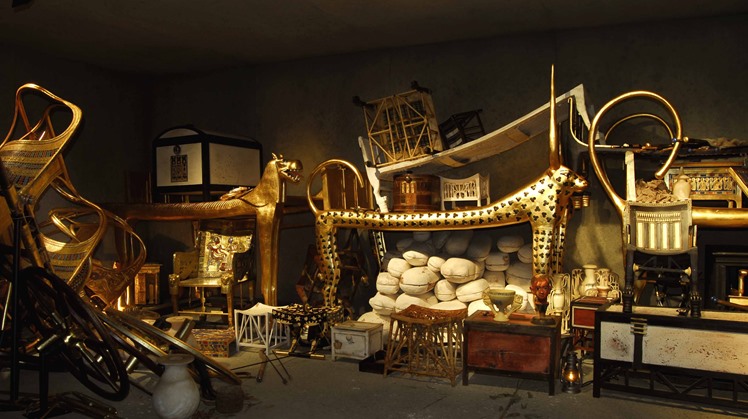Egypt's riches have attracted colonists and treasure hunters since 332 BC when Alexander the Great founded his city of the same name, wars with history's greatest empires—the Romans, Persians, Ottomans and finally the British—have filled the 22 centuries since; In 1798, Napoleon also led a brief French invasion that led to the discovery of the Rosetta Stone, which opened the eyes of Western Europe to Egypt.
As the long-awaited Grand Egyptian Museum prepares to open its doors in 2023, some archaeologists, Egyptologists and museums are calling for the repatriation of Egyptian antiquities, amid a growing campaign to decolonize American and European museums.
“People have been asleep for years, and now they are awake,” says Egyptologist Zahi Hawass, according to Smithsonian Magazine. “I am sure Westerners have nightmares about what happened: the unrighteous transfer of the history and heritage of Africa to their countries. They have no right to own this heritage in their own country at all.” ".
Even before Alexander the Great, Egypt was known to the Greeks, with references made to it in Homer's Iliad and the Odyssey. But after the Arab conquest in the middle of VII. In the century AD, European contact with Egypt became sporadic.
After centuries when Egypt was under Ottoman control, the mysterious inscriptions on the Egyptian obelisks that were reinstalled in Rome aroused the interest of Renaissance scholars. The Museo Egizio "Egyptian Museum" in Turin, Italy, was established in 1824 by the Savoy royal family in southern Europe. The erroneous in the sixteenth century that the city has Egyptian origins after discovering the base of a statue from the Roman era with a Latin inscription saying that there is a temple of the Egyptian goddess Isis standing in that spot, the foundations of the House of Savoy, who began to acquire Egyptian antiquities to clarify their relationship with this ancient history, the museum to display these holdings.
Alice Procter, historian of material culture and author of The Whole Picture: The Colonial Story of Art in Our Museums and Why We Need to Talk About It, says: “The Egyptian government has been largely successful in returning things in part due to the fact that many of the pieces were taken illegally and in an easy way. documentation."
Many of the illegally trafficked artifacts returned as recently as the 2011 Arab Spring were looted and sold to museums such as the Metropolitan Museum of Art in New York City. After international investigations, the museum sent dozens of pieces to Egypt.
 Wed, Dec. 14, 2022
Wed, Dec. 14, 2022